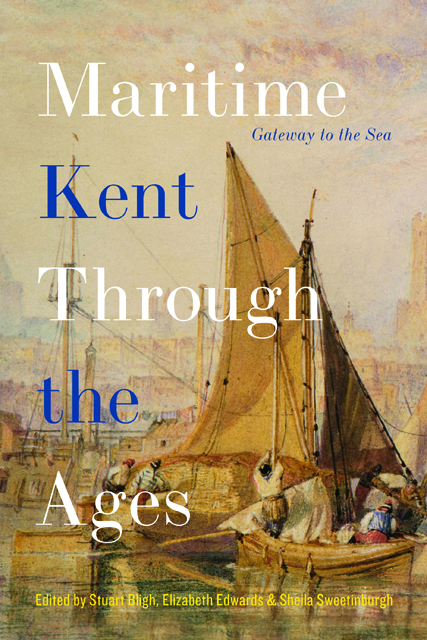12 - Urban Privilege? The Advantages and Enjoyment of Cinque Ports’ Status in the Middle Ages
Published online by Cambridge University Press: 20 December 2023
Summary
The Cinque Ports, Dover, Sandwich, Hythe, (New) Romney, and Hastings in Sussex, were among the earliest towns in the south-east and indeed in England. Their importance derived from the provision of ships to the monarch by the Portsmen and from the urban privileges which they received in return. These Ports must be considered together with their ‘limbs’, smaller settlements nearby such as Lydd, Fordwich, Folkestone and Faversham, whose mariners provided vessels alongside the Head Port to which they were linked.
These Ports must also be considered together with Rye and Winchelsea, just across the border in east Sussex, which were originally limbs of Hastings, as was Grange in north Kent. Rye and Winchelsea (the ‘Ancient Towns’) overtook Hastings in economic importance in the twelfth and thirteenth centuries. This arose partly from the importance of their shared harbour, the Camber, where fleets assembled in wartime as they did in Sandwich haven. Old Winchelsea was an early beach trading settlement, recorded in 1042, which lay on a now-lost shingle bank, and was replaced by the royal wine-importing town of New Winchelsea which was laid out on a grid plan on a nearby hill in the 1280–90s. Rye was founded in the later eleventh century, but all the five Head Ports were earlier than this, with diverse origins, and had developed organically in relation to the underlying topography. Recent publications from a variety of disciplines, history, archaeology and historic buildings surveys, working in cooperation, have allowed a new assessment of the nature and significance of the Cinque Ports. This chapter takes a brief overview of the development and trajectory of the Ports’ privileges and the advantages which these gave; and sets out two human examples of ambitious individuals who made use of these freedoms and rights.
The Cinque Ports were among the eleventh-century communities, not yet corporate, in which distinctions did not exist between, say, the burgesses and other inhabitants, or those who owned the guildhall or the tolls. The Ports were distinctively urban and even shared a feature of Spindler’s ‘portable’ communities when they exercised their rights to jurisdiction over the important annual Yarmouth herring fair.
- Type
- Chapter
- Information
- Maritime Kent through the AgesGateway to the Sea, pp. 277 - 298Publisher: Boydell & BrewerPrint publication year: 2021



